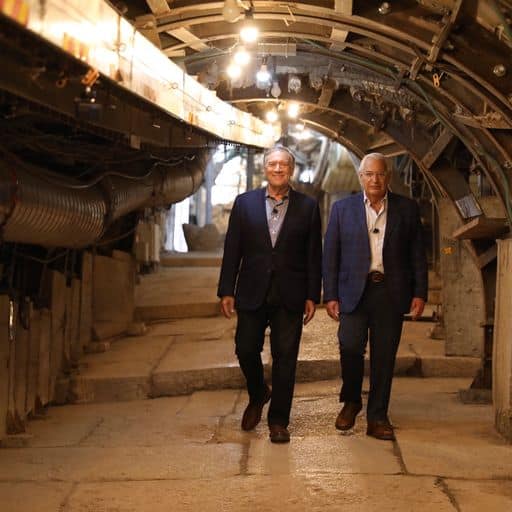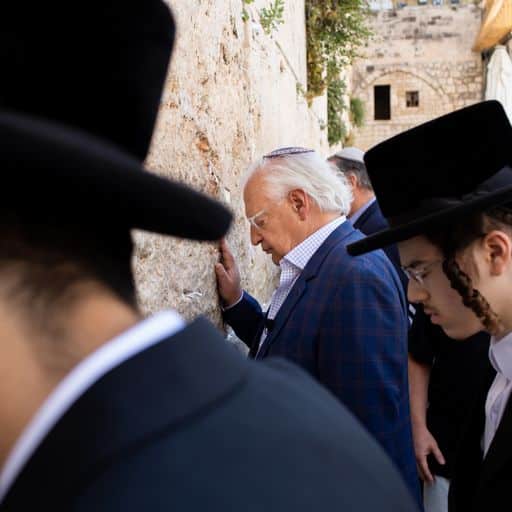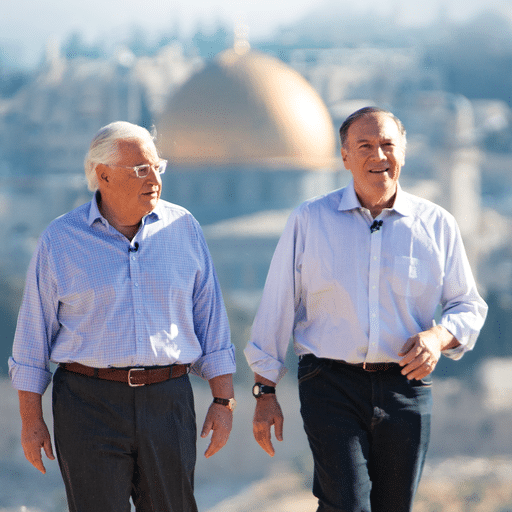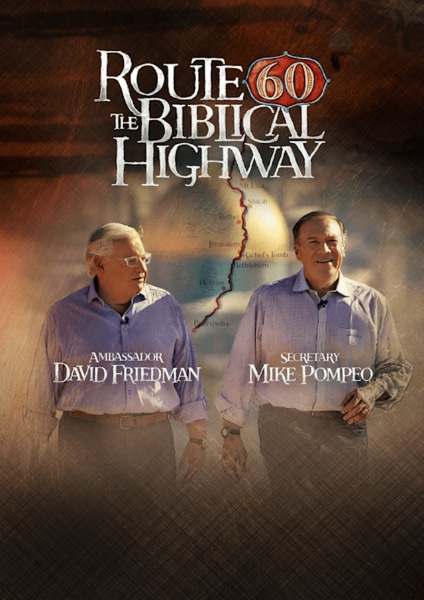Have you ever wanted to walk in the footsteps of Jesus but not been able to take a trip to Israel? If so, this film is for you.
Coming to theaters for two nights only, Monday and Tuesday, September 18 and 19, Route 60: The Biblical Highway is not only a tour of some of the most famous biblical locales but a pilgrimage as the hosts unpack the meaning of what happened in these places both for Jews and Christians. For information and tickets, click here.
David Friedman is Jewish and former U.S. Ambassador to Israel. Mike Pompeo is evangelical Christian and former U.S. Secretary of State. Together they traverse this 150-mile road that stretches from Nazareth in northern Israel to Beersheba in the south. As they do so, they reflect on what the places they visit mean in the history of Judaism and Christianity and why they are still significant for the spiritual sons and daughters of Abraham and Jesus today.
Route 60 is described as the original Bible belt, for many of the Bible’s stories happened along this road. Ancient Shechem, stop number two on the road, in the region of Samaria, is the site of Joshua’s altar. Friedman tells the story of Joshua and how he led the Israelites into the Promised Land after the Exodus from Egypt. Joseph’s tomb resides here as does Jacob’s well where Jesus met the Samaritan woman.
Stop number five takes Friedman and Pompeo to Jerusalem, 91 miles south of Nazareth, where there are so many sacred places. The film dedicates a good chunk of its run time to Jerusalem. The Old City is only one square kilometer and one would think that all the historic sites had already been dug up by now. Remarkably, while fixing a burst sewage pipe in 2004, steps were found that are believed to have led to the Pool of Siloam, where Jesus healed the blind man (John 9: 1-11).

Other highlights of Jerusalem are the Western Wall, the Garden of Gethsemane, and the Church of the Holy Sepulcher. At the site of Jesus’ betrayal by Judas, Friedman recalls his role in the Abraham Accords, a series of peace treaties normalizing diplomatic relations between Israel, the United Arab Emirates, Bahrain, Sudan, and Morocco, thus making steps to overcome the centuries of hatred between Jews, Arabs, and Muslims.

As Pompeo and Friedman make their way south of Jerusalem, they stop in Bethlehem where Pompeo reflects on the poverty of Jesus’ entrance into the world. Just outside of Bethlehem is Rachel’s Tomb. Considered a matriarch of Israel, Rachel was the wife of Jacob and mother of Joseph and Benjamin. Her tomb holds a special place in Friedman’s heart as here, he and his wife prayed that their son and daughter-in-law would conceive, and their prayer was answered.
Besides the various stops along Route 60, the film is interwoven with some dramatic elements, beautiful artwork, and wonderfully chosen passages of Scripture to deepen the reflections offered by the hosts.
At one point Pompeo ruminates that it seems like, in modern life, we’ve become “untethered from our Judeo-Christian values.” For him, traveling Route 60 was a hopeful experience that if we can remember where we came from, we can move into the future with a sense of direction and faith in God.

May your experience of this film reconnect you and your loved ones with the strength of faith that has been lived for thousands of years and with trust in the God of love will continue to inspire and grace us with the courage to live faithfully into the future.



